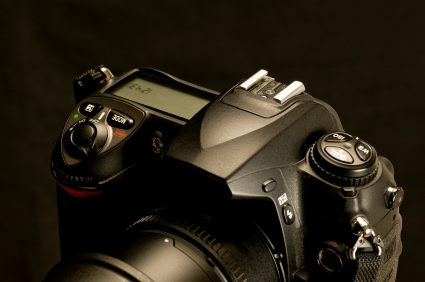By the early 2000s, most Americans had purchased a digital camera for personal use. The price was right and the convenience was unmatched. Through the years, the quality has gotten even better while the prices remain reasonable. According to Samsung, approximately 2.5 billion people around the world have a digital camera.
Digital cameras focus light onto a semiconductor to create a digital image. For those about to upgrade to a newer model, the materials that make up a digital camera and facilitate this process should be recycled responsibly.
Digital cameras contain metals that can be recovered for future uses. When electronics are recycled properly, intact natural resources can be conserved for reuse. Additionally, the water and air pollution potentially caused by electronic waste disposal is avoided. Also, recycling reduces the greenhouse gas emissions caused when new products are manufactured.
For example, printed circuit boards are one component of a digital camera containing precious metals such as gold and silver and base metals like copper and aluminum.
 Not only are there materials that can be reused, but electronic waste from devices like digital cameras also contains toxins that are damaging to our environment. For example, lead is used in soldering of circuit boards and other components. Lead is very harmful and can damage both the central and peripheral nervous systems and can adversely affect child development among other damaging effects.
Other components of a digital camera that could be reused or be responsibly recycled include the lens, color filters, the camera’s processor, a memory buffer, flash memory (either built in or detached), the batteries (either rechargeable or single-use), LCD display, LEDs, plated steel and various plastics.
For an interesting look at what’s inside a digital camera, go to KhanAcademy.com.
Never throw away your digital camera or any other household electronics. Here are some things you could do instead:
Not only are there materials that can be reused, but electronic waste from devices like digital cameras also contains toxins that are damaging to our environment. For example, lead is used in soldering of circuit boards and other components. Lead is very harmful and can damage both the central and peripheral nervous systems and can adversely affect child development among other damaging effects.
Other components of a digital camera that could be reused or be responsibly recycled include the lens, color filters, the camera’s processor, a memory buffer, flash memory (either built in or detached), the batteries (either rechargeable or single-use), LCD display, LEDs, plated steel and various plastics.
For an interesting look at what’s inside a digital camera, go to KhanAcademy.com.
Never throw away your digital camera or any other household electronics. Here are some things you could do instead:
 Not only are there materials that can be reused, but electronic waste from devices like digital cameras also contains toxins that are damaging to our environment. For example, lead is used in soldering of circuit boards and other components. Lead is very harmful and can damage both the central and peripheral nervous systems and can adversely affect child development among other damaging effects.
Other components of a digital camera that could be reused or be responsibly recycled include the lens, color filters, the camera’s processor, a memory buffer, flash memory (either built in or detached), the batteries (either rechargeable or single-use), LCD display, LEDs, plated steel and various plastics.
For an interesting look at what’s inside a digital camera, go to KhanAcademy.com.
Never throw away your digital camera or any other household electronics. Here are some things you could do instead:
Not only are there materials that can be reused, but electronic waste from devices like digital cameras also contains toxins that are damaging to our environment. For example, lead is used in soldering of circuit boards and other components. Lead is very harmful and can damage both the central and peripheral nervous systems and can adversely affect child development among other damaging effects.
Other components of a digital camera that could be reused or be responsibly recycled include the lens, color filters, the camera’s processor, a memory buffer, flash memory (either built in or detached), the batteries (either rechargeable or single-use), LCD display, LEDs, plated steel and various plastics.
For an interesting look at what’s inside a digital camera, go to KhanAcademy.com.
Never throw away your digital camera or any other household electronics. Here are some things you could do instead:
- Donate your camera to a school or nonprofit.
- Sell it on sites like Gazelle or eBay. Even if your camera is in bad shape, many of these businesses will recycle it.
- Trade it in for a new one. Many retail stores take your camera to recycle when you buy a new one.
- Return it to the manufacturer. Several digital camera manufacturers have takeback programs.